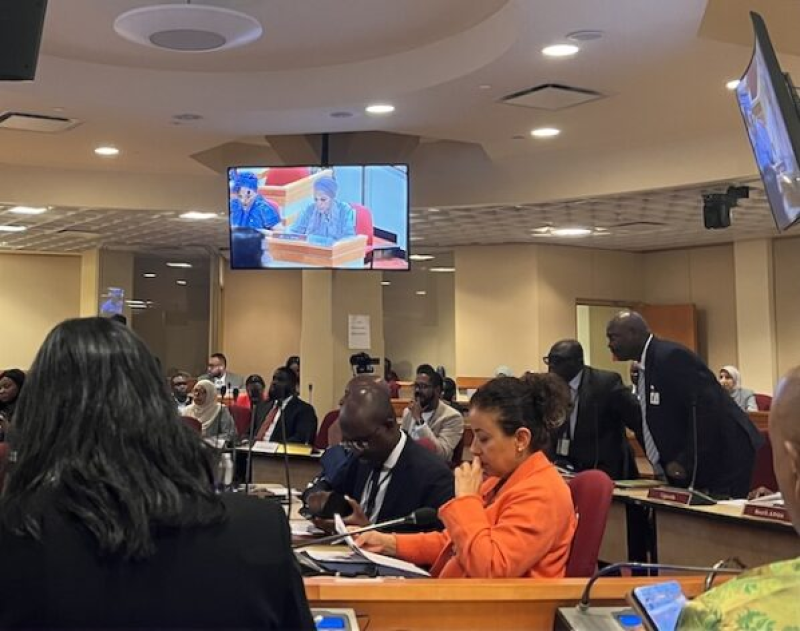- Israel Strikes Tehran with US Support Amid Nuclear Tensions |
- India Sees 9% Drop in Foreign Tourists as Bangladesh Visits Plunge |
- Dhaka Urges Restraint in Pakistan-Afghan War |
- Guterres Urges Action on Safe Migration Pact |
- OpenAI Raises $110B in Amazon-Led Funding |
Africa Risks Missing SDGs Without Urgent Reforms: Report

Leaders, policymakers, and partners unite at Africa Day 2025.
Africa is making progress on more than two-thirds of the Sustainable Development Goals (SDGs), but the pace remains far too slow to meet the 2030 targets—particularly in areas such as decent employment, gender equality, and access to social protection.
This was the central warning of the newly released Africa Sustainable Development Report (ASDR), launched during the 2025 Africa Day session at the UN’s High-Level Political Forum.
The report, which tracks alignment between the African Union’s Agenda 2063 and the UN’s 2030 Agenda, presents a sobering yet actionable picture: while Africa’s development efforts are gaining traction, deep structural barriers—ranging from inadequate financing and data gaps to high youth unemployment and gender-based exclusion—continue to hinder momentum.
Despite being home to several of the world’s fastest-growing economies, the continent faces an annual sustainable development financing gap of up to USD 762 billion, the report states. Social protection coverage remains alarmingly low, with only 19 percent of vulnerable populations benefiting from any form of safety net. Public investment in social protection is below 3 percent of GDP in most African countries, well under the global average.
“The current pace of progress is insufficient to achieve the SDGs by 2030,” the report warns, urging leaders to adopt concrete strategies to scale up inclusive growth, regional integration, and institutional capacity building.
Health outcomes have improved in areas such as life expectancy and disease control, but maternal mortality and unequal access to care remain significant challenges. Gender equality continues to be limited by legal barriers, high rates of violence, and the burden of unpaid care work.
On SDG 8, the continent struggles with low productivity, high informality, and persistent youth unemployment. The report stresses the urgent need for inclusive job creation and economic transformation. While some recovery is seen in sectors like tourism, key indicators remain weak: GDP growth per capita dropped from 2.7 percent in 2021 to just 0.7 percent in 2023. Over 23 percent of African youth are not in education, employment, or training (NEET), with young women disproportionately affected. Despite its potential, tourism contributed only 6.8 percent to GDP in 2023.
Economic shocks, climate change, and geopolitical instability continue to undermine efforts toward job creation and sustainable growth. The report calls for data-driven strategies, innovative financing, and integrated policies to close development gaps and build resilient, equitable systems aligned with both global and continental agendas.
“It is not enough to just create jobs; we must ensure safe working conditions,” said H.E. Amb. Selma Malika Haddadi, Deputy Chairperson of the African Union Commission.
UN Deputy Secretary-General Amina Mohammed acknowledged the uneven starting point for many African countries, stating, “Too often, Africa isn’t at the table where decisions are made, but is the first to feel the impact.” She added, “Our young people deserve more than we give them,” stressing the need for inclusive investment in youth and education.
Central to the discussion was the need to mobilise greater technical and financial support, scale up climate financing, address illicit financial flows, and reduce social and economic inequalities. Participants also emphasised the importance of stronger partnerships (SDG 17), inclusive social protection systems, and youth- and women-led innovation as key enablers of transformational change.
The launch of the ASDR marked a major milestone, offering data-driven insights to support national strategies and accelerate progress toward sustainable development.

